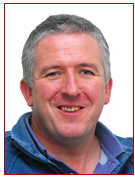



Hot Topics Addressed at WPSA UK Branch Annual Meeting
UK - A session on injurious pecking in poultry and measures to address the issue was among the highlights of the annual meeting of the UK branch of the World's Poultry Science Association, which began in Nottingham today, reports Jackie Linden.The two-day meeting began with four original communications on poultry nutrition covering the potential of blue lupins in layer diets, a novel wheat cultivar for broilers, 'superdosing' of phytase and the effects of feeding oils with different rations of omega-3 and omega-6 fatty acids on chicken meat quality during storage.
A following session addressed injurious pecking by chickens - particularly laying hens - and the current status of beak trimming, which is already banned in some European Union countries and looks likely to cease in the UK in the coming years. The papers presented shed new light on why birds start to feather-peck and various genetic and management strategies to try to prevent this aggressive behaviour.
This was followed by another four original communications, also on the theme of bird behaviour and welfare.

The day was rounded off by the Gordon Memorial Lecture, an annual event commemorating the highly respected poultry scientist, Dr Robert Fraser Gordon. The Memorial Trust selects one person each year who has made a distinguished contribution to poultry science.
This year's recipient was Professor Pete Kaiser, who is Director of the UK's National Avian Research Facility, Deputy Director and Head of the Division of Infection and Immunity at the Roslin Institute and Royal (Dick) School of Veterinary Studies and Chair of Animal Infectious Diseases at the University of Edinburgh.
In his lecture, Professor Kaiser gave an overview of his research into avian immunology, which focuses on gaining better understanding of host-pathogen interactions in birds - including chickens - to deliver practical outcomes, including the development of novel and improved vaccines and breeding for disease resistance.











